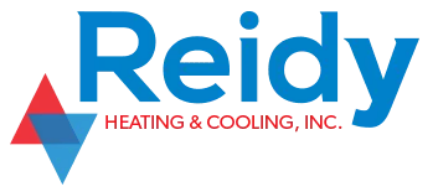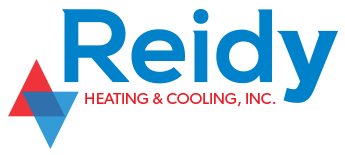
When heating equipment ages, it loses some of its ability to adequately keep your home warm. It may use more energy than it should. Often, people add to their homes without updating their heating equipment, and that can make equipment work harder than it should and wear out more quickly. And, the older your heating equipment gets, the more likely it is to need larger, more expensive repairs. If you’ve noticed any of these concerns with your current heating system, keep reading to learn about the different types of heating available for your home.
5 Types of Residential Heating Systems
Below, learn more about the five types of heating systems offered by Reidy Heating & Cooling, Inc. – how they work to heat your home, and how they can improve your energy consumption and home comfort.
- Furnaces: Many homeowners use furnaces to keep their homes warm when the temperatures dip down. Most furnaces use gas or oil for home heating. Furnaces usually require a system of ductwork to deliver heated air throughout the home, commonly known as forced-air heating. Today’s furnaces are much more efficient than their predecessors, with some achieving efficiencies as high as 98.5%.
- Boilers: Boilers generally use oil or gas, and operate by sending heated water or steam through pipes throughout the home. The hot water or steam is distributed throughout the home via baseboard radiators or radiant floor systems. Boilers tend to last a long time, but that can mean an older boiler in your home may be using more energy than a modern, high-efficiency boiler system.
- Heat Pumps: Heat pumps are ultra-efficient, and in recent years have been engineered to function even in colder climates. Heat pumps use the heat from the air or ground to heat your home, and they do not need fossil fuel in order to operate. Instead, they’re able to extract heat and pump it into your home. As an added benefit, many models are able to reverse the process in the summer, effectively cooling your home as well.
- Ductless Heating: Ductless heating is a perfect choice for homes without ductwork, or for additions or converted spaces that don’t have access to the home’s central duct system. Most ductless systems use heat pump technology to heat homes, and, like centralized heat pump systems, are often able to cool the home during warmer weather. Ductless systems are installed as separate units throughout your home, and are easily controlled via remote.
- Baseboard Heating: Baseboard heating can be a component of a boiler system, or can operate independently from room to room using electricity to generate the heat. Electrical baseboard heat offers targeted comfort, and is usually controlled via thermostat on a room-to-room or zoned basis.
I’d like to learn more about upgrading my heating system. Can Reidy help?
At Reidy, we provide complete heating services to our customers, including new installation of quality heating equipment. We will be more than happy to talk to you about your current heating system, and help you find an upgrade that meets your lifestyle needs as well as your budget. Call us today at (413) 534-3749 to find out how we can help you with your home heating needs.


